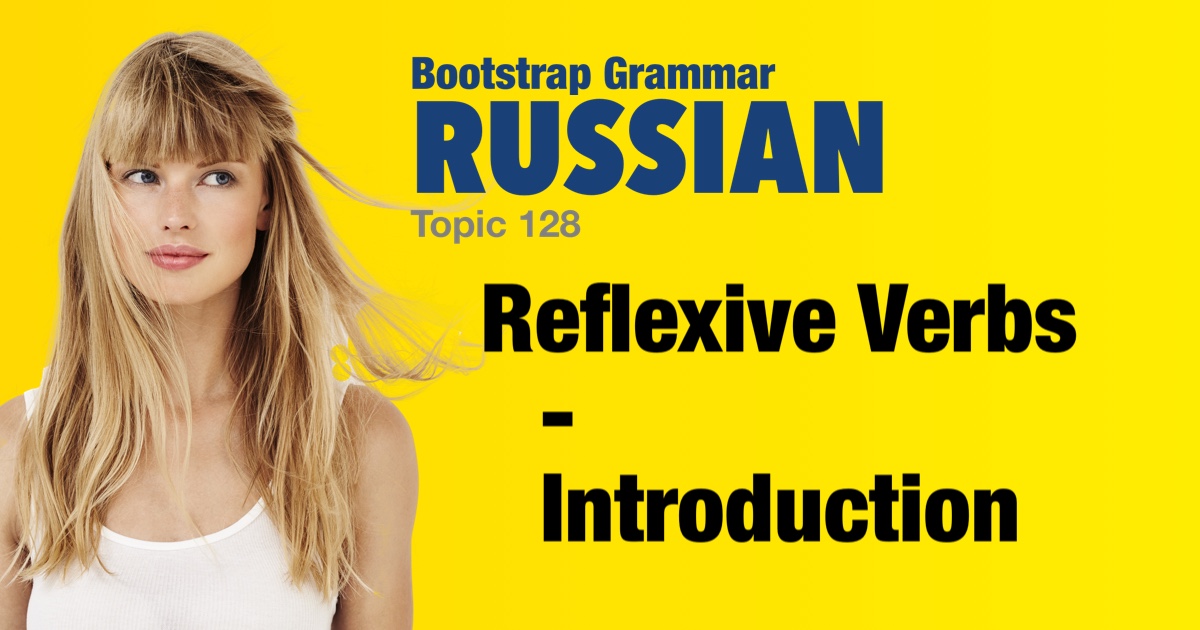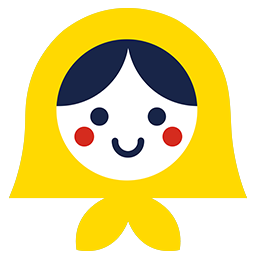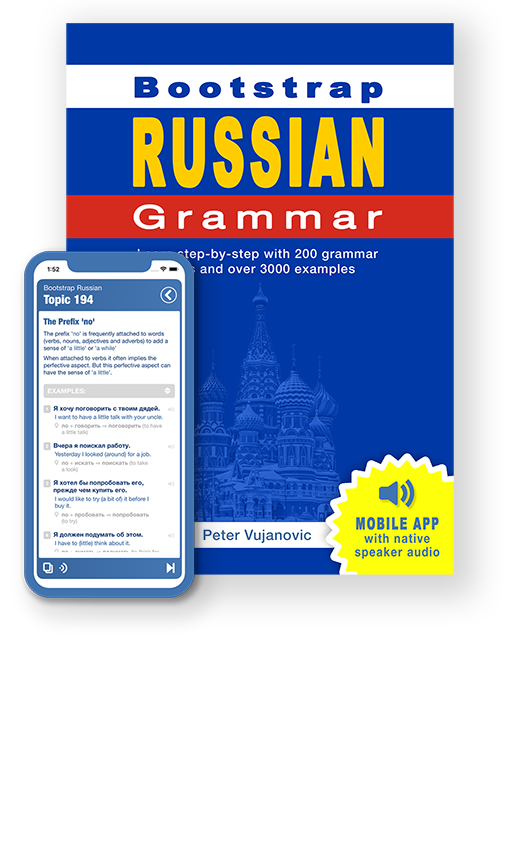Russian grammar - Reflexive Verbs - Introduction |
|||
|
|||
The reflexive pronoun себя (oneself) is attached to certain Russian verbs where the action is done to oneself. In English we do this too but the pronoun remains unattached - such as 'to bath oneself'. Reflexive Russian verbs are constructed by taking the original verb and attaching the postfix «-ся» which is contraction of себя. We illustrate with examples that use the verb учиться - 'to teach oneself' or 'to learn'. It conjugates in the present tense as follows: • я учусь, ты учишься, он/она/оно учится, мы учимся, вы учитесь, они учатся Note that reflexive verbs do not take a direct object - the себя itself is the object. So the verb учиться is not used to say 'to study something' but that one is engaged in the process of study. |
| Examples: | |
|
Я учусь во время ужина.
I study during dinner.
|
|
|
Он учится каждый вечер.
He studies every evening.
|
|
|
Почему ты так усердно учишься?
Why are you (informal) studying so hard?
|
|
|
Они учатся в библиотеке.
They are studying in the library.
|
|
|
Ольга и Виктор учатся вместе.
Olga and Victor study together.
|
|
|
Она молода, но быстро учится.
She is young but learns quickly.
|
|
|
Мы учимся в одном классе.
We study in the same class.
|
|
|
Они учатся у своего отца.
They learn from their father.
|
|
|
Вы учитесь в МГУ?
Are you (formal) studying at Moscow State University?
|
|
|
Ты учишься в этой школе?
Do you (informal) study at this school?
|
|
|
Вы учитесь на своих ошибках.
You (plural) are learning from your mistakes.
|
|
 |
|



